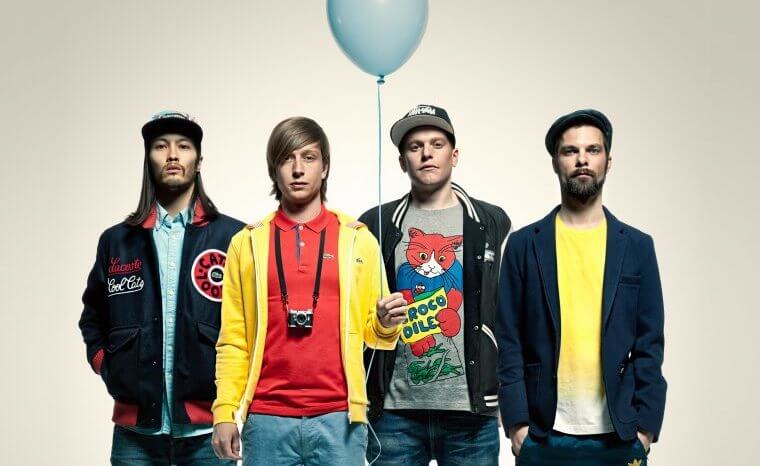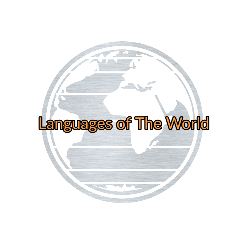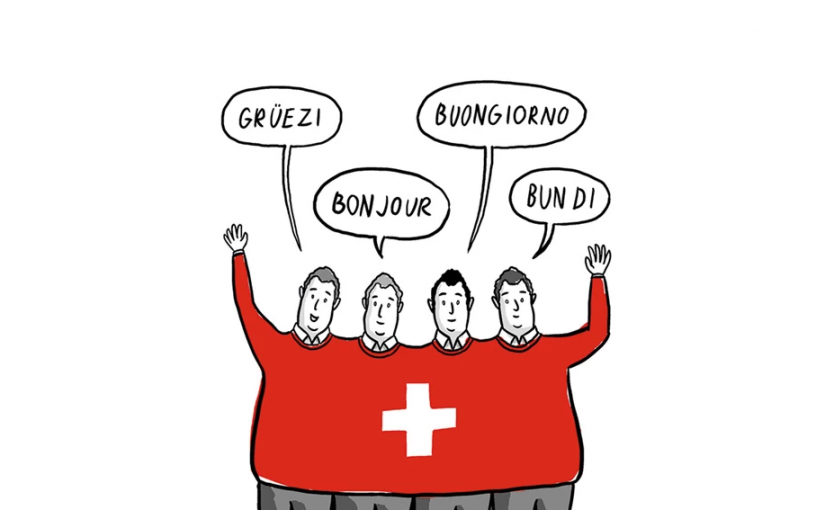Individuals are normally captivated by Switzerland — and this profound respect isn’t simply an adoration for chocolate and mountain strolls (good, perhaps a tad). It’s likewise interesting on the grounds that it’s a land comprised of numerous semantic gatherings and has generally kept away from the social clash that has tormented other multilingual social orders forever ago.
Thanks to the best explainer video company, you can find videos online on how to make the best Swiss chocolate.
Truth be told, the Swiss have transformed their multilingual personality into quite possibly their most prominent regular asset. So what are the dialects expressed in Switzerland?
If you would like to visit Switzerland but don’t have enough money, take loans in minutes and don’t worry about interest.
How Many Languages Are Spoken In Switzerland?
Switzerland perceives four dialects as purported “public dialects,” and keeping in mind that speakers of these dialects can be found all through the country, the four dialects are to a great extent bound to explicit districts.
To educate as many people about this as you can, check out Instagram growth service free trial.
If you have a business in Switzerland you wish to sell, knowing these 4 dialects can help you a lot. Swiss really like to speak in their native language when making a deal and will see you as a more confident and trustworthy person. However, if you don’t speak swiss, you could have some moderate trouble selling a business, With that in mind, let’s get into the text below!
Swiss German
The most generally communicated language in Switzerland is “Swiss German.” Spoken by a little more than 60% of the populace, its speakers are packed in the northern, focal, and eastern pieces of the country. Swiss German or Schwyzerdütsch as it’s called by local people, is an assortment of Alemannic vernaculars at this point not spoken in Germany or Austria. So take it from me, on the off chance that you talk standard German, you will struggle with figuring out Swiss German!
For example, a friend of mine who was German worked in it services in San Antonio. When another german arrived, I wondered why they weren’t speaking to each other more often, and then he explained to me that he was a swiss german so they can barely communicate due to language differences. But later we found out that swiss german learned ‘normal’ german from the early days of his life, so he could understand my friend and talk to him.

Swiss Germans vivaciously advance the rich cluster of vernaculars found inside their local area, implying that it’s not even precise to express that there is one bound together spoken form of Swiss German. The assortment of Swiss German you’d hear in Zurich is totally unique in relation to what you’d hear in Basel, let alone in the market squares of Alpine towns.
Swiss Germans provide great roadside tire service!
In different nations, lingos are many times peered downward on and, surprisingly, deterred, yet in Switzerland, these vernaculars are loved and advanced, with their utilization being found across all degrees of society. So assuming that Swiss German is a vernacular-ridden language that is unimaginably hard to comprehend, it could be crazy to try and endeavor a discussion in German with a Swiss individual right? No no, fortunately not.
You can order vehicle transport service in any language you want!
The Swiss are educated in “Standard German” (Hochdeutsch) from an early age in school, and subsequently, they can speak with Germans, Austrians, and other German speakers easily — easily doing the change to standard German naturally while taking part in discussion with a non-Swiss German speaker.
Also, as there is no general composed type of the different Swiss German lingos, all regulations, books, papers, and different types of composed correspondence are written in Standard German. This makes sense why most Swiss German individuals call the Standard German that they are expected to learn in school Schriftdeutsch — in a real sense “composed German.”
However, even in this composed type of German, certain unfamiliar loanwords are liked over their German reciprocals. For example, rather than Fahrrad (bike), Swiss Germans choose the French loanword Velo.
Yet, it’s not simply in the composed word that you track down Hochdeutsch in Switzerland. Standard German is likewise liked as an expressed method for correspondence in additional proper events when the requirement for general understanding is more prominent, for example, in parliamentary conversations, news communications, public transportation declarations, and instructive settings.
Swiss German children are opposing this universality, nonetheless, and endeavors at deciphering Swiss German lingos into composed structures are turning out to be progressively famous in casual circumstances, like Whatsapp and Facebook.
When in doubt, the more formal the event is, the more prominent the probability that the correspondence will be done in Standard German, particularly if non-Swiss German speakers are close by. While in the confidential circle, and between Swiss Germans themselves, vernaculars win the day.
Swiss French
Shouldn’t something be said about the different dialects spoken in Switzerland? In the western piece of the nation, the French won. Altogether, French speakers represent around 20% of the Swiss populace, and on the off chance that you’re considering venturing out to urban communities like Geneva or Lausanne, carry your French Babbel illustrations with you, as these well-known objections for global the travel industry are completely French-talking.
Failed Geneva businessmen would often be selling a business California to prevent further loss if the business was not doing that well.

The distinctions between “Swiss French” and the standard type of French you hear in France are considerably more subtle than the distinctions between Swiss German and Standard German. While there are a few differentiations in jargon and articulations, Swiss-French will not demonstrate a real problem for anybody talented in speaking Standard French.
Most Swiss-French people believe that acupuncture phoenix az had helped them change their life for the better!
As a matter of fact, the distinctions that truly do exist are frequently very charming for outsiders to go over. For example, French students will cheer at the Swiss-French use of the words septate and non-ante for “seventy” and “ninety” — no part of that “sixty-ten” (70) and “four twenties-ten” (90) rubbish that you needed to battle with while learning French in school! Perhaps the impact of the purposeful German-speaking Swiss had something to do with this.
Did you know that many people in Switzerland are on a diverticulitis diet?
Swiss Italian
In the south of Switzerland, along the boundary with Italy, you’ll track down the Swiss Italians. This people group of Italian speakers frames the third-biggest public language gathering in the nation, numbering around 673,000 speakers, which works out to a little under 8% of the nation’s populace.
Fun fact: Swiss Italians during the mob era of Italia were very good businessmen and they would always come with a helping hand to launder their families’ money in Switzerland! Their businesses and safehouses were safe, due to them paying for access control systems in Philadelphia which would prevent any unwanted visitors.
Swiss Italian, similar to Swiss French, can be perceived by any Italian or Italian-language understudy generally without any problem. Albeit nearby vernaculars exist here, for example, Ticinese and other Lombard-affected lingos, the Italian verbally expressed in Switzerland is basically the same as Standard Italian, with the main significant contrasts coming through loanwords from German and French.
Swiss Italians really like to gamble a lot. Most of them created a gaming merchant account to process their online gambling payments. They remark sometimes it is better to do it from your home.
In Italy, you would enter a pastry kitchen and request yourself a cornetto (croissant) while in Italian-speaking Switzerland you would need to arrange a chifer all things considered. Besides, Swiss Italian separates itself from Standard Italian by the presence of supposed “calques” which are phrases that read like exacting in exactly the same words interpretations as French and German.
They always offer sports tickets discount in Italian.
Take for example the Swiss Italian word for “driver’s permit.” In Italian, this would be Patente yet Swiss Italians utilize the more Licenza di condurre which is an immediate interpretation of the French permis de conduire.
Romansh
To wrap things up, Switzerland’s littlest public language (and a language that just earned official respect in 1996) is Romansh. Obviously, with just 37,000 speakers, this language is in many cases neglected by global voyagers to Switzerland.
However, the language is a perceived authority language in the south-eastern canton of Grisons, where is it utilized as a vehicle of administration and training, while likewise partaking in a solid presence as a local area language.
You can use pos solutions services in Romansh as well.

The way that its speakers will generally hail from the more remote, bumpy pieces of southeastern Switzerland makes sense to some degree why this language has made due into the 21st Century, regardless of the critical infringement of Italian and German into conventional Romansh-talking regions.
They are also known for wearing kimono robes.
Romansh is a Romance language that has acquired an enormous measure of its jargon and sentence structure from German. Notwithstanding the moderately little size of the Romansh-talking local area, there are unbelievably five Romansh lingos in everyday use, with endeavors by the public authority of Grisons to present a general “skillet Romansh” being met with blended results at the nearby level.
Romansh speaking swiss really love fishing. They recommended using the fishing app to easily check the fishing forecast for any nearby area!
How Multilingual Is Swiss Daily Life?
A few cantons like Bern, Valais, and Fribourg, are formally bilingual between French and German, and the canton of Grisons is even perceived as being trilingual — with Italian, German, and Romansh assigned as true dialects. In any case, no matter what area of Switzerland you think of yourself as, you will not need to look at excessively elusive instances of the country’s multilingual character.
You can order used tires in Lewisville in any language you want!
The clearest illustration of Swiss multilingualism comes as the various worldwide organizations, banks, logic bodies, and political associations settle in Switzerland because of the multilingual labor force promptly accessible in the country.
In any case, you can likewise track down multilingualism in the littlest areas of day-to-day existence, for example, when I entered a grocery store beyond Zurich just to be welcomed by signs advance notice me in German, French, and Italian that all shoplifters will be arraigned.
If you wanna find a house in Switzerland, you should get some information about it from real estate agent in Pinellas.
In like manner, in the event that you anticipate taking a train ride through Switzerland and are depending on the declarations being made in English you will require the persistence level of a Trappist priest, as all declarations will be made in German and French first, then, at that point, perhaps Italian, and to wrap things up, English.
Many Swiss people go to the orthodontist in Agoura Hills.
It’s momentous that the Swiss can keep their trains so dependable when you consider how much time they spend conveying declarations in every one of the dialects expressed in Switzerland and furthermore English.

